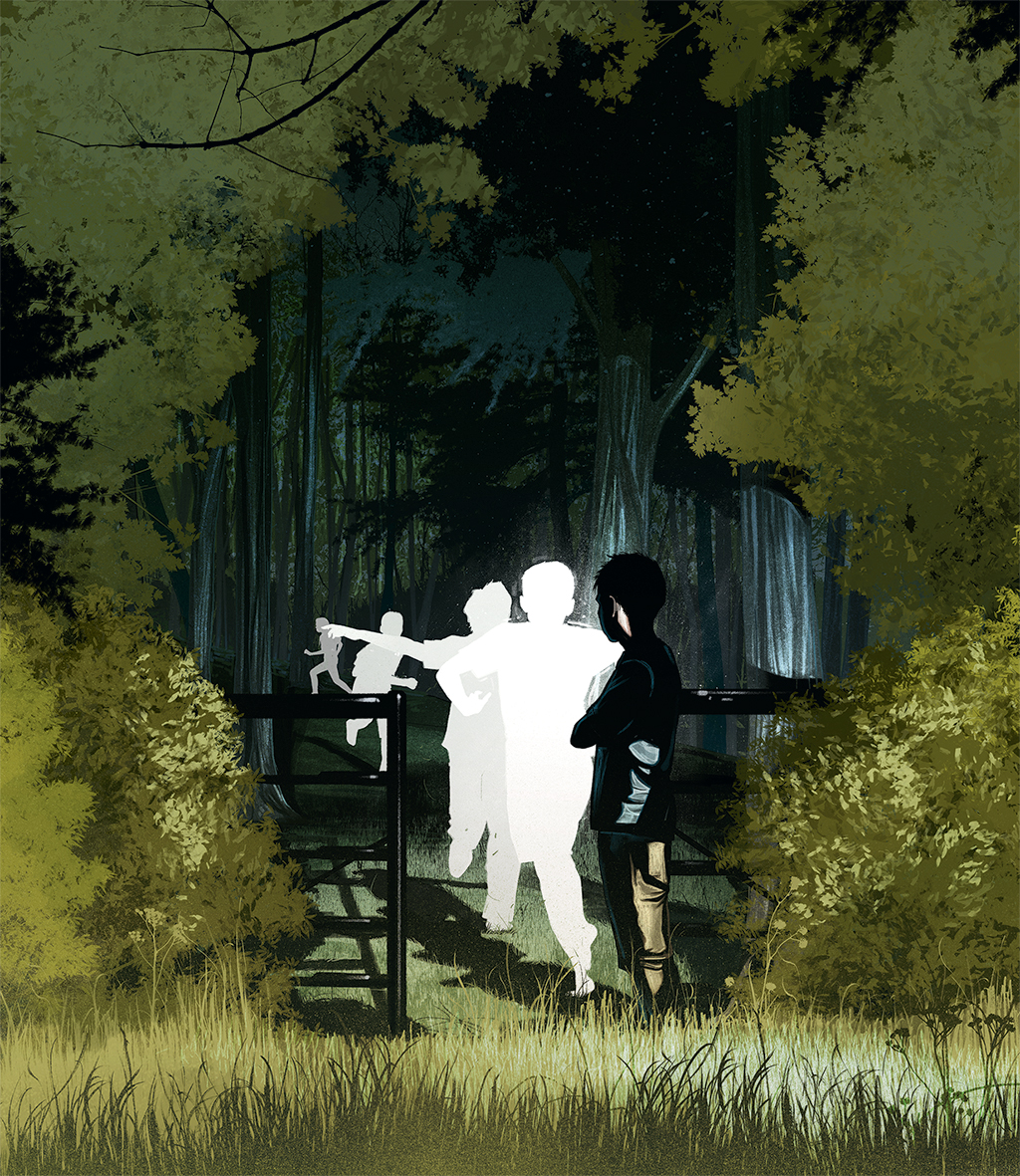Great novels have emerged from Virginia’s rich history—such as Edward P. Jones’s antebellum tragedy, The Known World, or Nell Zink’s race masquerade, Mislaid. But for all its literary merits, the state doesn’t have a Louise Erdrich or an Annie Proulx: a native novelist who can, over a lifetime of writing, both exhume and embroider a contemporary regional mythology. Setting her latest novel, Commonwealth, in Arlington, Ann Patchett has done more than any recent author to upend how we look at the landscape of Virginia.
Commonwealth’s Virginia is close to the one we now know, papered over with shopping malls and office parks. But Patchett is a novelist for whom the natural world is an irresistible force. Virginia’s power, Commonwealth suggests, isn’t in what humans have put here but in what lurks in the pockets of tall grass and groves of vine-covered oaks.
The novel opens in Southern California, where—in a hazy, freewheeling scene that floats along like one of John Cheever’s drunks ambling from room to room—Bert Cousins, an attorney, crashes the christening party of a colleague’s baby—and leaves with the man’s wife, Beverly, as his prize after the two share a kiss in the nursery. That kiss is the original sin that sends their mix of children out of the well-pruned garden and into the wild.
The pair leave their spouses and resettle in Bert’s native Arlington. Beverly’s young daughters, Caroline and Franny, come east with their mother, and each summer Bert’s kids—Cal, Holly, Jeanette, and Albie—are shipped out, purportedly to spend time with their father. Instead, the two sets of siblings patch themselves into a naughty little band of marauders, largely abandoned by the adults who are supposed to be minding them. To these six city kids, suburban leafiness comes across as untrammeled countryside. Patchett’s Virginia envelops them in its thick verdure, shielding the crew from the eyes of their elders and turning even the rule-followers of the group into wild roamers. “In the summers,” Patchett writes, “they wandered out of the civilized world and into the early orphanage scenes of Oliver Twist.”
In fact, the children’s liberation flips our understanding of American migration and expansion: In Commonwealth, California is the tamed land of tract housing and neighborly barbecues, while Virginia’s primeval forests invite chaos and uncertainty, recalling the reaction of the early European settlers when they arrived. Patchett—a writer known for her deep attachment to Tennessee—seems to be reaching across the border to access this history and the spell it has continued to work on America. The children are both unprotected and untethered in the Virginia woods. No one feels at ease: The adults claim they can’t comfortably sit outside while the kids wilt from the wet heat.
The idea of Virginia gets stuck in the grown children’s adult psyches, the way the early days of the American frontier have worked their way into our national story. As Patchett dives in and out of the children’s lives, circling backward and forward in time, Virginia becomes that place they obsess over later in life, emotionally investigating what happened there. The word “Virginia” itself almost becomes a symbol for unfettered freedom and its tragic consequences.
One summer, on a trip to Lake Anna, the six children wake in the Pinecone Motel to discover a note from Bert and Beverly: “Have breakfast in the coffee shop. You can charge it. We’re sleeping late. Do not knock.” The note is unsigned, and the children see it as “one more document in the ever-growing mountain of evidence that they were on their own.” Seeing the morning as an opportunity, the six steal a bottle of gin and Bert’s gun from the glove compartment and set off on a two-mile walk to the lake, first stopping for Cokes and candy bars and to rid themselves of Albie, the youngest and most irritating sibling, by dosing him with Cal’s Benadryl and ditching him in a grassy field.
The five older siblings, free to do what the kids later call “real things,” spend the day swimming and diving from rocks. They return just before their parents awake from a long lie-in. “The parents seemed not to notice the swimsuits, the sunburns, the mosquito bites. The Cousins children and the Keating children smiled up with beatific forgiveness. They had done everything they had ever wanted to do, they had had the most wonderful day, and no one even knew they were gone.”
It is a morning entirely without consequences, which at the same time sets in motion a chain of events leading to Virginia itself taking Cal’s life.
Never again do any of the surviving siblings enter the woods after the summer Cal dies. They become proper urbanites or recluses, scattering to Brooklyn, Chicago, LA, and a Buddhist mountaintop retreat in Switzerland. Everything from a glimpse at Franny’s Virginia driver’s license to Jeanette’s desire to write “not Virginia” on her passport application to the title of a novel within the novel (a Commonwealth inside Commonwealth) is a direct line back to the “endless unsupervised summers of the commonwealth.”
In that way, Patchett’s newest work is a sophisticated fable, a cautionary tale, and an intimate reflection on the primitive America we only think we’ve left behind.
Design and style editor Hillary Kelly can be reached at hkelly@washingtonian.com. On Twitter, she’s @hillarykelly.
This article appears in our August 2016 issue of Washingtonian.















